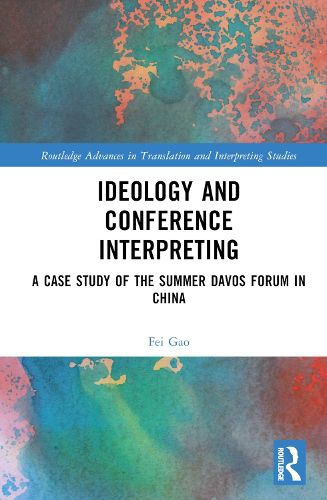Readings Newsletter
Become a Readings Member to make your shopping experience even easier.
Sign in or sign up for free!
You’re not far away from qualifying for FREE standard shipping within Australia
You’ve qualified for FREE standard shipping within Australia
The cart is loading…






Gao uses the case of conference interpreting at the Summer Davos Forum in China to systematically reveal the ways in which ideology and linguistic 're-engineering' can lead to discourse reconstruction.
Translation and interpreting can never be wholly neutral practices in 'multi-voiced' transnational communication. Gao employs an innovative methodological synthesis to examine in depth a range of elements surrounding interpreters' ideological positioning. These include analysing the appraisal patterns of the source and target texts, identifying 'us'-and-'them' discourse structures, investigating interpreters' cognitions, and examining the crossmodal means by which interpreters render paralanguage. Collectively, they bridge the gap between socio-political and ideological concerns on the one hand, and practical questions of discourse reconstruction in cross-language/ cultural events on the other, offering a panoramic perspective.
An invaluable read for scholars in translation and interpreting studies, particularly those with an interest in political discourse or the international relations context.
$9.00 standard shipping within Australia
FREE standard shipping within Australia for orders over $100.00
Express & International shipping calculated at checkout
Gao uses the case of conference interpreting at the Summer Davos Forum in China to systematically reveal the ways in which ideology and linguistic 're-engineering' can lead to discourse reconstruction.
Translation and interpreting can never be wholly neutral practices in 'multi-voiced' transnational communication. Gao employs an innovative methodological synthesis to examine in depth a range of elements surrounding interpreters' ideological positioning. These include analysing the appraisal patterns of the source and target texts, identifying 'us'-and-'them' discourse structures, investigating interpreters' cognitions, and examining the crossmodal means by which interpreters render paralanguage. Collectively, they bridge the gap between socio-political and ideological concerns on the one hand, and practical questions of discourse reconstruction in cross-language/ cultural events on the other, offering a panoramic perspective.
An invaluable read for scholars in translation and interpreting studies, particularly those with an interest in political discourse or the international relations context.